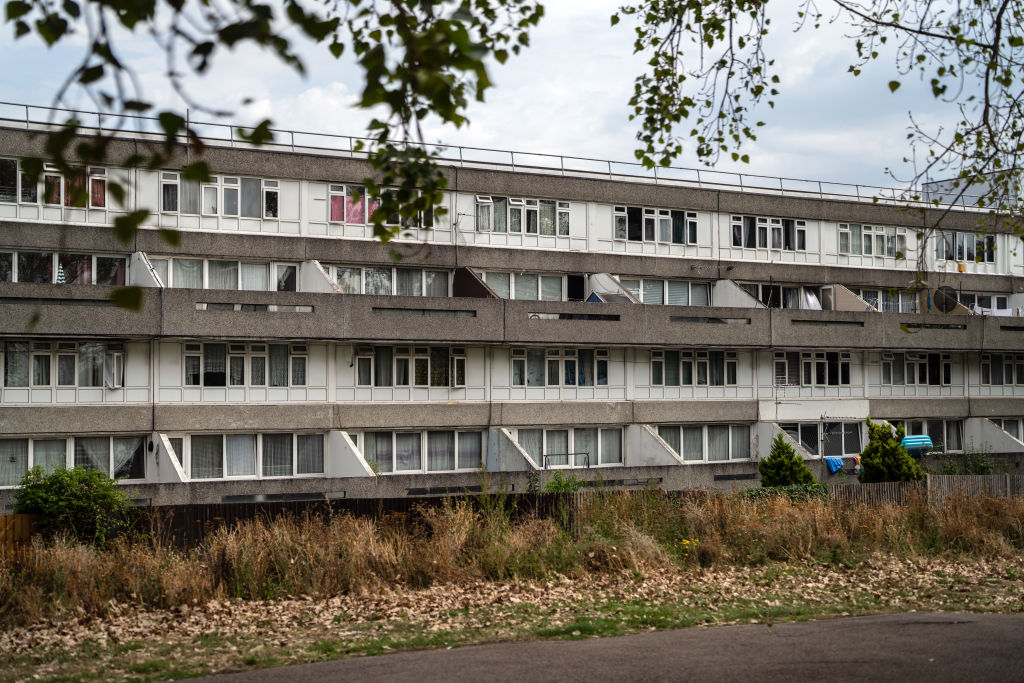
In our country, we have a housing crisis. In a series of select committee inquiries, looking at areas such as social housing, permitted development rights and the private rented sector, we have seen a picture of housing which will, sadly, be all too familiar to many tenants – showing that housing in England is often scarce, unaffordable and in poor condition. The very state of our nation’s housing stock, and the lack of available, affordable homes, undermines efforts to level up, threatens social mobility, and damages our public health.
The death of Awaab Ishak provided tragic and irrefutable evidence that, as the Levelling Up Committee concluded in its report, the condition of some social housing in England has deteriorated so far as to be completely unfit for human habitation. This tragedy brought shame to the social housing sector and highlighted the appalling conditions of damp and mould suffered by many social housing tenants. It also pointed to regulators who had been silent while housing providers failed their tenants. Action on social housing quality is long overdue. The government’s initial steps to fix this problem are welcome, including bringing forward “Awaab’s law”, which is intended to force social landlords to fix damp and mould within strict time limits.
But what of the plight of those who live in the private rented sector? Citizens Advice, among others, is right when it calls for private landlords to be held to the standards proposed for social housing. It is a cold reality that the condition of private rented accommodation is more likely to be poor than homes in other tenures, such as social housing, and to contain hazards that pose an immediate threat to health and safety.
Some 23 per cent of private rented homes are classed as non-decent, according to the latest English Housing Survey, and category one hazards, such as serious damp and mould, are present in 14 per cent of rental properties. Indeed, while most private tenants are satisfied with their homes, and most landlords manage their properties well, we must ensure the system of regulation is better equipped to deal effectively with those landlords who do not play ball – the rogues and, in some cases, the downright criminal.
Some 4.6 million tenants in England are in the private rented sector today, representing 19 per cent of households. Twenty years ago, those tenants would typically have been students or young professionals saving for their first home. Today’s tenants are, on average, older, perhaps living with children, and more likely to be on low incomes. Whatever their age, status, or income, how likely are tenants to have their voices heard and their complaints about their homes resolved? In the committee’s inquiry on the private rented sector, we spoke to organisations representing tenants and landlords and found that too often tenants are afraid to complain when things go wrong, due to the threat that they may be evicted without fault.
In that context, the government’s proposal to repeal section 21 of the Housing Act of 1988 and stop “no fault” evictions should be welcomed. Repeal of section 21 is necessary to help stop unfair evictions, to give tenants the security they deserve and the confidence to complain to landlords without fear of eviction.
Higher enforceable standards in private rented homes are badly needed. The government’s Renters’ Reform Bill will introduce a decent homes standard for the private rented sector but this will only help to raise standards if local authorities have the ability to enforce it vigorously. At the moment levels of housing enforcement activity vary hugely between local authorities, with many councils opting for informal engagement with landlords rather than enforcement action. Precarious local government finances, a shortage of qualified enforcement staff, including housing and environmental health officers, and a lack of reliable data, all represent significant obstacles to councils enforcing housing standards. In our committee’s report, we recommended that the government introduce a tougher civil penalties regime so that councils have the capability to collect financial penalties on landlords who breach standards.
There is a strong correlation between poor energy efficiency and non-decent homes. More anecdotally, the stories of people living in cold, damp and mouldy properties that they can’t afford to heat properly are far too common. It’s crucial that the decent homes standard is configured to encourage energy efficiency improvements in privately rented homes. Energy efficiency must become a priority in the private rented sector to help reduce energy bills and improve tenants’ health, as well as contributing towards climate targets.
While there are proposals to improve the rights of tenants in the private rented sector, the scale of the problems run wider than concerns about security of tenure and housing quality addressed by the government’s white paper. It is the affordability crisis, caused by the decades-long failure of successive governments to build enough homes, which is at the root of many of the housing problems we face today.
The affordability crisis that exists in housing in England must be met head-on. It can only be properly solved by bringing about a significant increase in house building, particularly affordable housing. At the very least, the government should recommit to the delivering the affordable homes the country needs, particularly the 90,000 new socially rented homes that are needed every year. If it is serious about tackling our housing crisis, the government must get to grips with planning reform and answer the big questions about the housing sector’s ability to deliver the number of new homes that we need.
Read more:
Keir Starmer ignores the housing crisis at his peril
The end of the housing delusion
The great housing con: why the coming crash will rewrite the UK economy – Audio Long Reads





